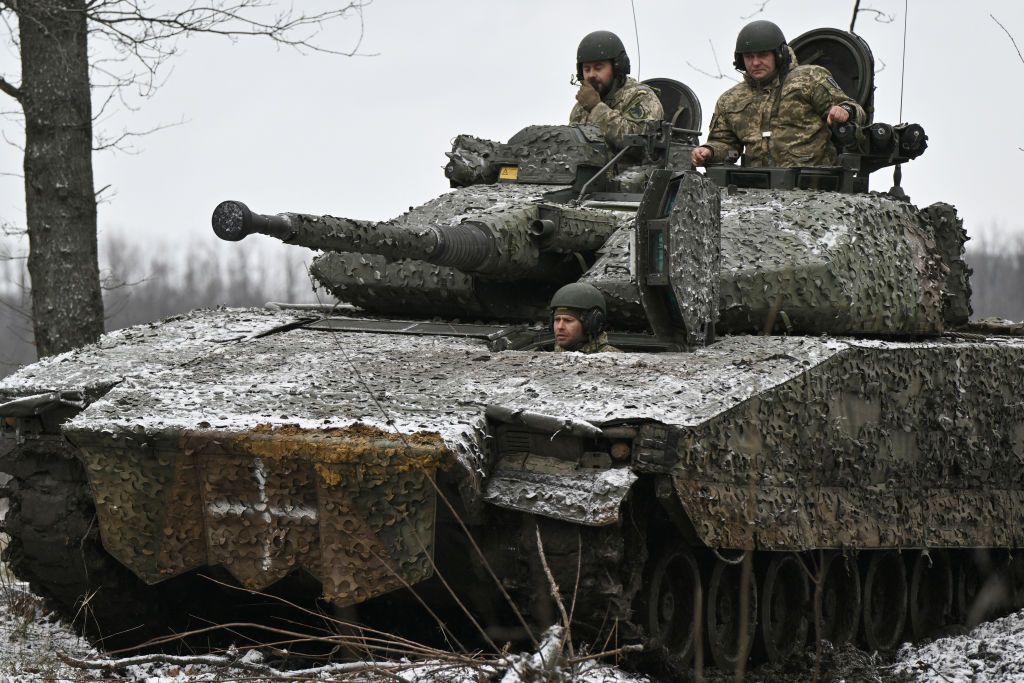Key developments on Dec. 1:
- Russia's war enters new phase with winter complicating operations, says Zelensky
- Zelensky says he's ready to hold elections, but most Ukrainians are against it
- SBU reportedly blows up cargo train in Russia's east
- Russia increases sabotage attempts in Ukraine’s northeast, Border Guard reports
- Swiss government estimates $8.8 billion worth of Russian assets frozen
- Government appoints new top cyber defense official
Russia's war against Ukraine has entered a new phase, with winter expected to complicate fighting and the world's attention diverted to the Israel-Hamas war, President Volodymyr Zelensky told the Associated Press in an interview published on Dec. 1.
He admitted that Ukraine's latest counteroffensive didn't achieve what was expected of it due to the lack of weaponry and troops.
“There is not enough power to achieve the desired results faster. But this does not mean that we should give up, that we have to surrender,” Zelensky said.
“We are confident in our actions. We fight for what is ours.”
Despite all the setbacks, Ukraine has managed to regain more territory occupied by Russia since the start of the full-scale invasion and degrade Russian capabilities in the Black Sea, the president said.
“Look, we are not backing down, I am satisfied. We are fighting with the second (best) army in the world, I am satisfied,” said Zelensky.
“We are losing people, I'm not satisfied. We didn't get all the weapons we wanted. I can't be satisfied, but I also can't complain too much.”
Zelensky also said he's ready to hold presidential elections next year, but most Ukrainians believe such a vote would be “dangerous and meaningless” in wartime.
This comes along with recent poll results that 62% of Ukrainians believe elections should only be held after Russia’s war is over.
Zelensky's five-year term in office span ending next year raised questions about whether a new presidential vote would be held amid the full-scale invasion.
Foreign Minister Dmytro Kuleba said on Nov. 3 that Zelensky was considering holding elections as scheduled in March 2024, but several days later, the president rejected the idea as “irresponsible.”
Under Ukraine's Constitution, elections are prohibited while the country is in a state of martial law. According to Ukrainian law, the constitution cannot be amended under martial law.
Ukrainian officials have said that there are clearly logistical and security challenges involved in holding free and fair elections during wartime. Millions of voters live abroad or in territories currently occupied by Russia.
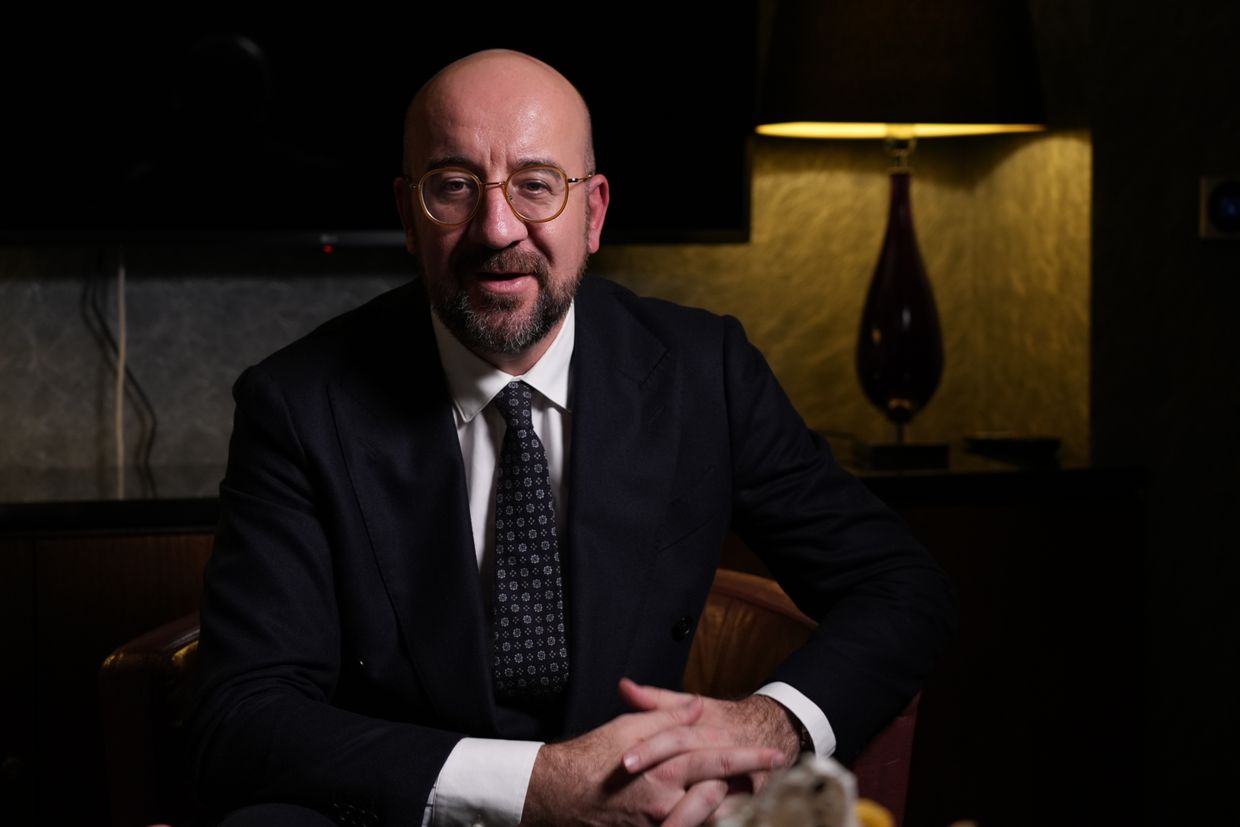
SBU reportedly blows cargo train in Russia’s east
Ukraine’s Security Service (SBU) blew up another train on a key railway line in Russia's far eastern Republic of Buryatia, Ukrainska Pravda reported on Dec. 1, citing a security service source.
This was allegedly the second stage of an SBU operation to disable the Baikal-Amur railway line. The railway route, crucial for Russian military logistics, runs north of the Trans-Siberian railway and is part of a network of tracks connecting Russia with China.
Previously, Ukrainska Pravda reported on an allegedly SBU-orchestrated explosion overnight on Nov. 29-30 in Severomuysky Tunnel, Russia's longest railway tunnel nearly 5,000 kilometers from Ukraine.
Four explosives were said to have detonated in the tunnel while a freight train was passing through. Due to the explosion, Russian trains had to take an alternative route, passing over the 35-meter-high Devil's Bridge, Ukrainska Pravda's source said.
Explosives planted on the bridge reportedly detonated just as a fuel train was passing over it.
“Russian special services should get used to the fact that our people are everywhere. Even in distant Buryatia,” the source told Ukrainska Pravda.
Russian Telegram channels reported on the second explosion around midnight on Dec. 1 local time, claiming that three fuel tanks were damaged in the first explosion and six more in the second one.
The Kyiv Independent could not verify the report.
Russian authorities began investigating the explosion in the Severomuysky Tunnel as a terrorist attack, Russian media reported.
While the SBU has not officially commented on the reports, Ukraine's military intelligence agency (HUR) announced on Nov. 30 that it had conducted a joint operation with local resistance to sabotage railway infrastructure in Moscow Oblast.
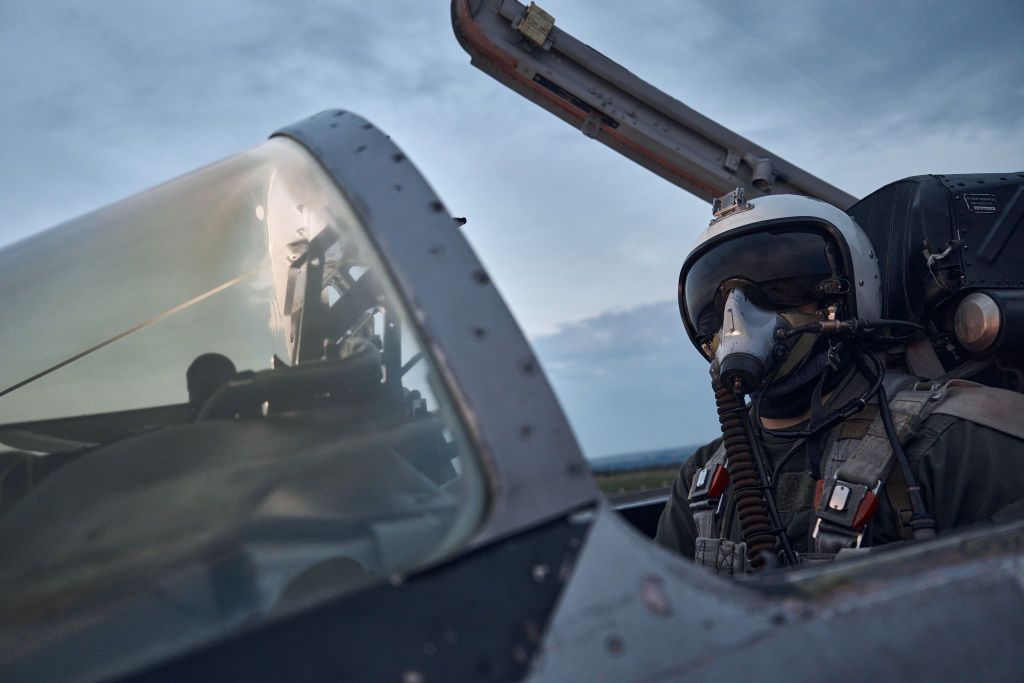
Government appoints new top cyber defense official
The Ukrainian government appointed Yurii Myronenko as the new head of the State Special Communications Service after the previous chief was charged with embezzling public funds, the service announced on Dec. 1.
Before the appointment, Myronenko, a serviceman with a background in corporate management, commanded a drone unit fighting in the southeastern Zaporizhzhia Oblast.
Holding a degree in international economics and management, Myronenko started his career in banking, holding managerial positions in major Ukrainian banks.
Ukraine’s new top cyber defense official also has experience working in financial, transport, pharmaceutical, chemical, and energy industries.
In 2019, he joined the Territorial Defense Forces and was among those defending Kyiv at the beginning of Russia’s full-scale invasion.
Yurii Shchyhol, the former State Special Communications Service chief, along with his former deputy Viktor Zhora and four others, are suspected of embezzling Hr 62 million ($1.7 million) in state funds allocated for the purchase of equipment and software between 2020 and 2022.
Shchyhol was detained on Nov. 23 but released from custody on a Hr 25 million ($693,000) bail one day later. Zhora was detained on Nov. 27 for two months, with bail set at $276,000.
Ukraine's High Anti-Corruption Court has ordered the seizure of cryptocurrencies totaling $1.5 million from Shchyhol.
The State Service of Special Communications and Information Protection is Ukraine's primary agency responsible for the national cyber security system and a part of the country's defense sector.
Digital Transformation Minister Mykhailo Fedorov has already assigned Myronenko to audit the State Special Communications Service’s work.
Myronenko pledged to present a plan for the further development of the service soon.
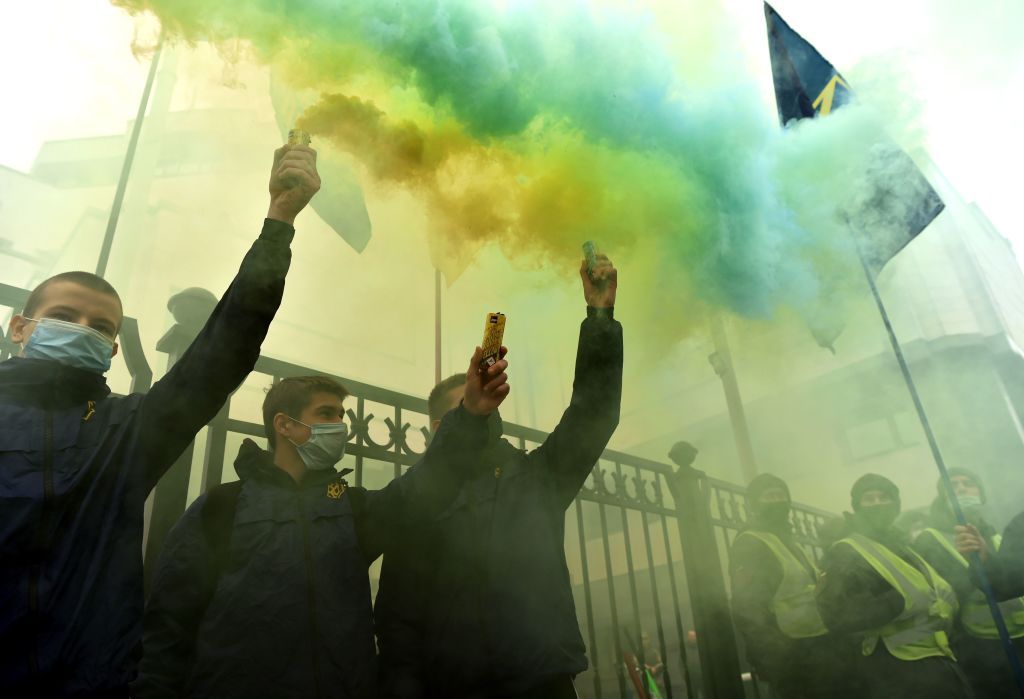
Switzerland estimates $8.8 billion worth of Russian assets frozen
Switzerland froze $8.8 billion in Russian assets as part of its sanctions against Moscow, the Swiss State Secretariat for Economic Affairs (SECO) announced on Dec. 1.
The figure was subject to change and is currently an estimate, with a more accurate amount expected at the end of the second quarter of 2024.
It was only a slight increase from the amount the Swiss government announced in December 2022, $8.5 billion.
The higher figure resulted from more than 300 people and 100 companies that have been added to the sanctions list over the past year.
Switzerland has also blocked around $8.4 billion in foreign currency assets that belong to Russia's central bank.
It was much smaller than the total amount of money from Russian nationals, natural persons, and legal entities held by Swiss banks, which the SECO estimated to be around $48.15 billion.
The Swiss Bankers Association estimated in March 2022 that the true figure was likely significantly higher, perhaps as much as $213 billion.
The Swiss government previously said in February 2023 that it would not confiscate Russian assets held in the country because it was against the country's constitution and could “violate Switzerland’s international obligations.”
Switzerland, a historically neutral country, has supported Ukraine with economic and humanitarian aid since the beginning of the full-scale invasion but has refrained from sending military support.
Swiss law prevents the export of Swiss weapons to combat zones, even when supplied by an intermediary country.
Attempts to change the law since the full-scale invasion have been repeatedly voted down by the Swiss parliament.
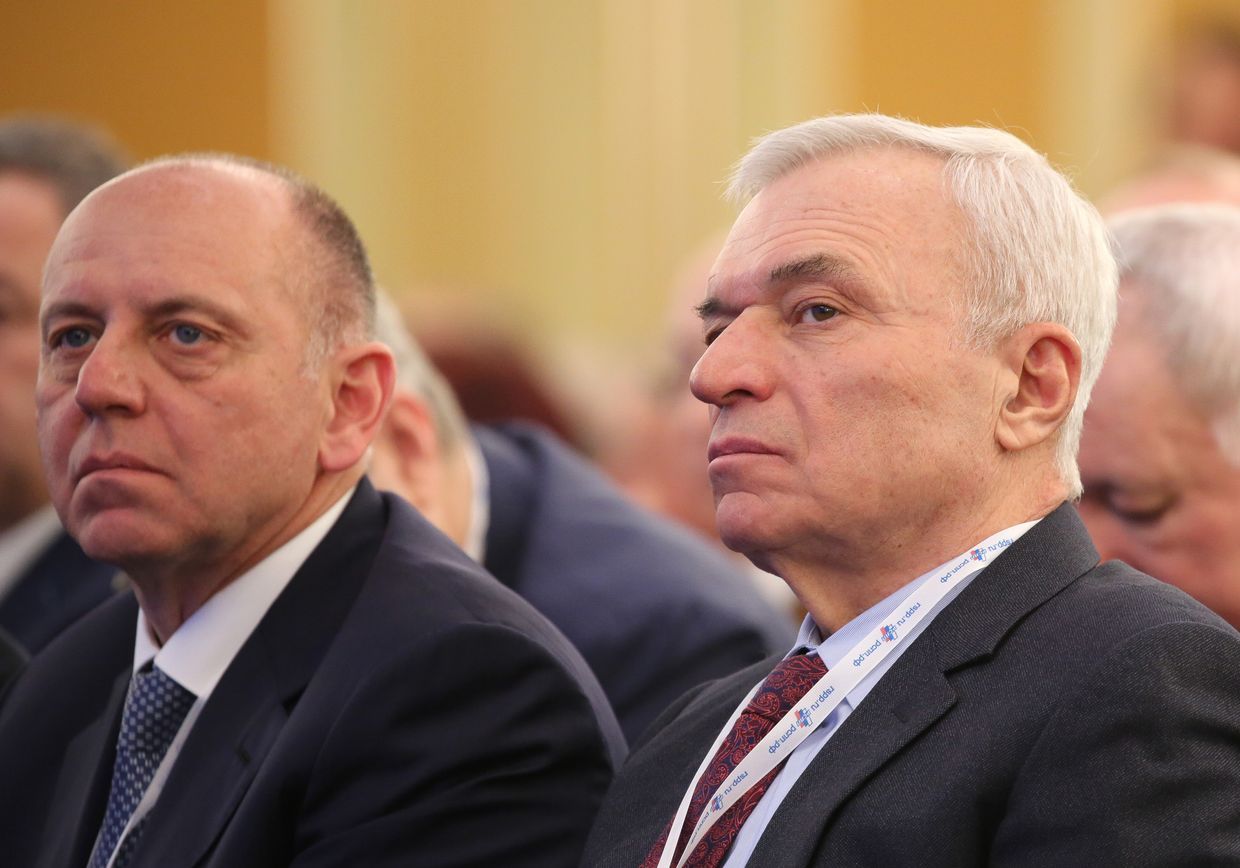
Border Guard reports increasing Russian sabotage groups' activity in Kharkiv Oblast
Russian sabotage groups are attempting to cross Ukraine's border into Kharkiv Oblast increasingly more often compared to their usual target, Sumy Oblast, State Border Guard Service spokesperson Andrii Demchenko told national television on Dec. 1.
“Previously, we recorded most (Russian sabotage groups) in the Sumy direction. But in the past weeks, we saw a change of direction toward Kharkiv Oblast,” Demchenko said.
“We haven't recently recorded the activity of sabotage groups in the Sumy direction,” he said, assuming that Russia might have changed its strategy due to little gains from incursions.
Kharkiv Oblast also suffered the most Russian strikes over the past month, according to Demchenko.
Ukraine liberated much of Kharkiv Oblast in a lightening counteroffensive last fall. Since then, the region has suffered daily attacks, and Russian troops have been concentrating a large force in its northeastern area.
Russia has repeatedly attempted to cross Ukraine's border with sabotage groups, namely in northern Sumy and Chernihiv oblasts.



